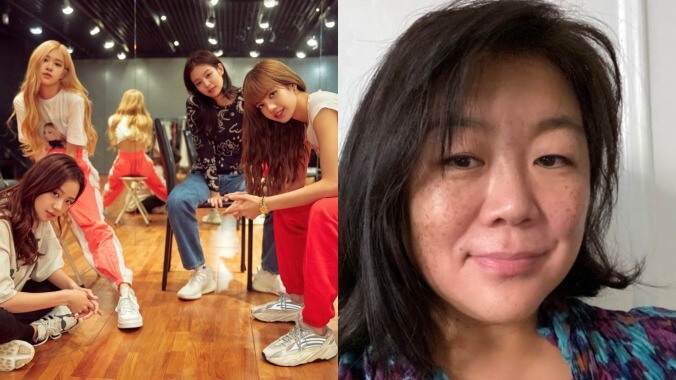Director Caroline Suh on Netflix's BLACKPINK doc Light Up The Sky: "I hope this humanizes them"

After only four years, South Korean pop juggernaut BLACKPINK has already fashioned a legacy littered with shattered records. As recently as Monday, Soompi reported the latest milestone that group members Jennie, Jisoo, Lisa, and Rosé can boast at will: Their debut video,“BOOMBAYAH,” is the first K-pop debuting video to reach 1 billion views, and their third billion-viewed video in total. It’s an achievement that puts them among the likes of Lady Gaga (with whom they recently collaborated), Justin Bieber, Bruno Mars, and other industry mainstays—a feat made even more impressive when you consider that the group only just released their first full-length LP this month.
Those who wish to gain a better understanding of how these four women rose to pop prominence are in luck: October 14 will mark the premiere of Netflix’s first dedicated K-pop documentary BLACKPINK: Light Up The Sky. Directed by Salt, Fat, Acid, Heat director and producer Caroline Suh, the production will trace the pop juggernaut’s path to success, from the group’s days of intense training to hitting the Coachella stage (and being the first Korean girl act to do so). Featuring a cache of unreleased footage amassed by YG Entertainment, Light Up The Sky offers an in-depth look that even diehard fans may not be used to seeing. We spoke briefly with Suh on what fans may gain from this documentary, the group’s relationship with producer Teddy Park, and her own awakening when it came to the phenomenon.
The A.V. Club: Light Up The Sky focuses on the formation and meteoric rise of BLACKPINK. Why focus on this particular portion of their journey?
Caroline Suh: I guess it just comes out of my personal curiosity as to how these four people came together and became this phenomenon. What is it like to be them right now? What does it feel like? It came out of my own desire to understand who they were and how they got here.
AVC: This film covered a pretty lengthy time span. How much time did you personally get to spend with the women and how much of it relied on independently captured footage?
CS: We filmed during two blocks of time, one in the fall of last year and then in February of this year. So we were able to film them in the studio, see them do what they do with their downtime, and show how we see them today. We also knew that they had thousands and thousands of hours of archived video of them from their trainee days to Coachella to their world tour. We knew we wanted to use that and show how they evolved from being young kids to this phenomenon. So a lot of what was shown was what they had in their archive.
AVC: Doing a documentary on such a huge group must pose some creative challenges, especially when you’re making something for a fan base that’s so knowledgeable and often knows their developments hours before everyone else. Did that add any pressure to create a fresh experience for them?
CS: Well, I wanted to understand the context of why they were so popular and why the fans loved them. But after getting an understanding of that, we kind of just focused on the story we were telling and we hope that it would bring something new to the super fans who already know everything about them and that they might have a chance to see the BLACKPINK members speak at length, which they don’t typically do by themselves.
AVC: Was there anything that struck you as a bit of a surprise during the creation process?
